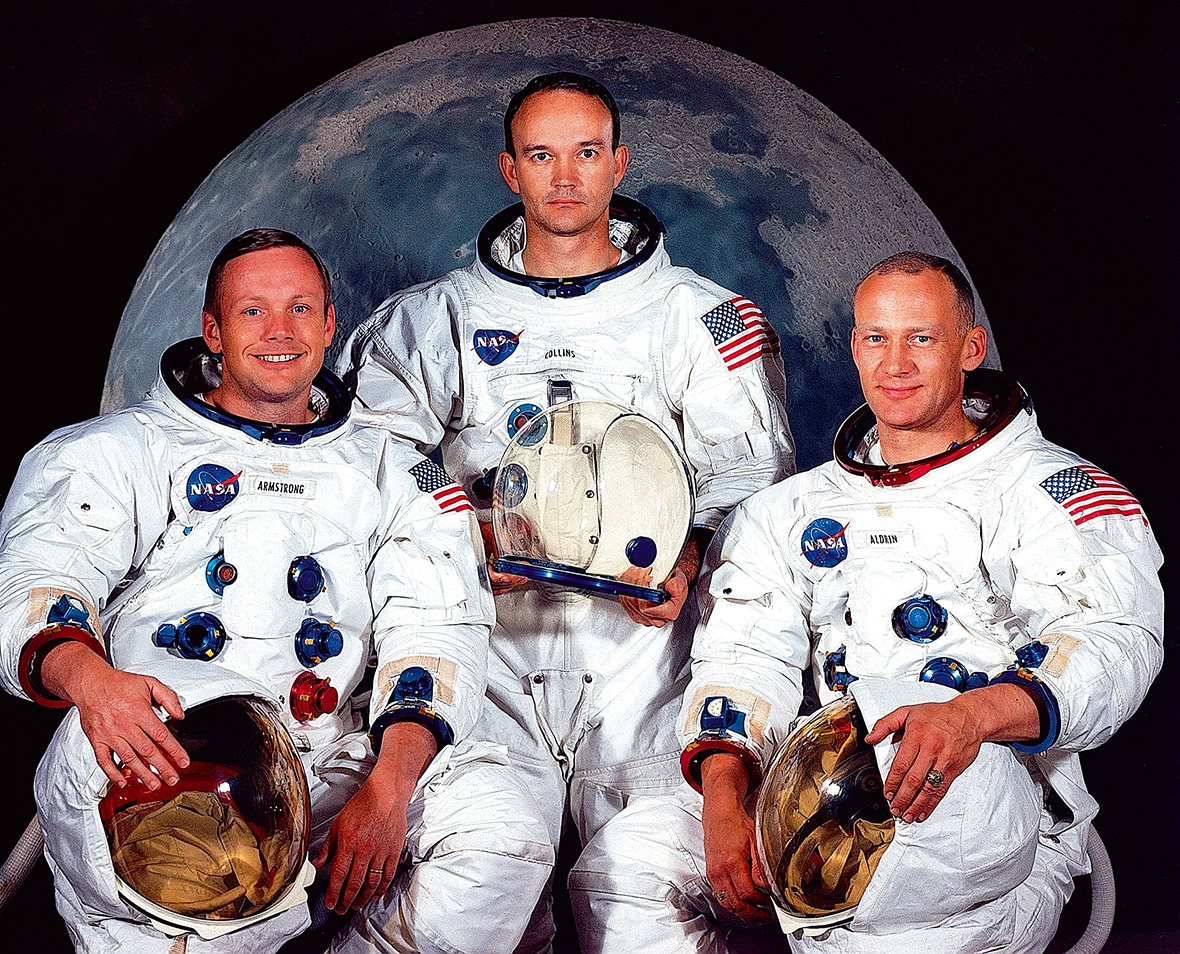
The Apollo 11 crew: Armstrong, Collins and Aldrin
In September 1962, American President John F Kennedy made his famous speech at Rice University in Houston, Texas.
“We choose to go to the Moon in this decade and do the other things, not because they are easy, but because they are hard; because that goal will serve to organize and measure the best of our energies and skills, because that challenge is one that we are willing to accept, one we are unwilling to postpone, and one we intend to win, and the others, too.”
Not diminished
It was a huge political as well as financial commitment.
When Apollo11 blasted off, the NASA space programme was soaking up close to 5% of total government expenditure at a time when America was embroiled in the Vietnam War and domestic racial tensions were exploding all over the country.
History has not diminished its significance or that of the subsequent achievement when in July 1969, Neil Armstrong set foot on the lunar surface accompanied by an equally famous address to the world.
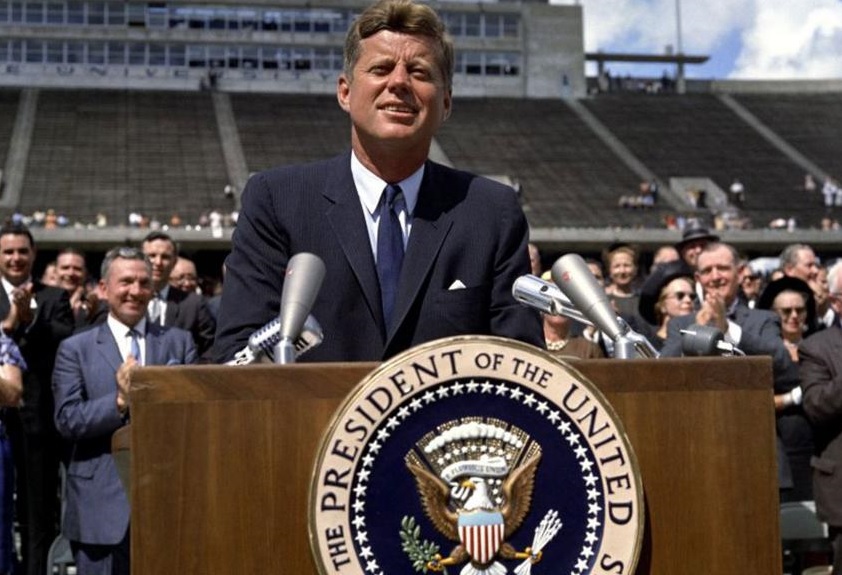
Kennedy set out his vision in 1962
Getting to the Moon was hard indeed; especially in the early years when the USA was playing catch-up to a series of Soviet Union propaganda coups – from the Sputnik satellite and Laika the dog to Yuri Gagarin and Valentina Tereshkova.
But in an era when political promises still held believable common currency, Kennedy knew that in what was to become a race not just of technology but ideology, the USA also needed heroes to display to the world.
The Right Stuff
In return, NASA gave him clean cut, buzz-cut all-American heroes made of, as author Tom Wolfe so memorably called, ‘The Right Stuff’.
These were remarkable men who risked, and lost, their lives in pursuit of an almost impossible dream. Twelve eventually walked on the lunar surface. The cost at the time the Apollo programme ended was around $28 billion – approximately $500 billion today.
These were remarkable men who risked, and lost, their lives in pursuit of an almost impossible dream. Twelve eventually walked on the lunar surface. The cost at the time the Apollo programme ended was around $28 billion – approximately $500 billion today.
True price
And it could have ended in disaster (as Apollo 13 later showed), as the Apollo 11 landing itself was almost aborted (famously summed up by Mission Control saying; “We copy you on the ground. You got a bunch of guys about to turn blue”).
President Nixon had a speech ready to be broadcast if the Armstrong and Buzz Aldrin were left stranded for eternity.
In that respect the true price and scope of their heroism was incalculable.
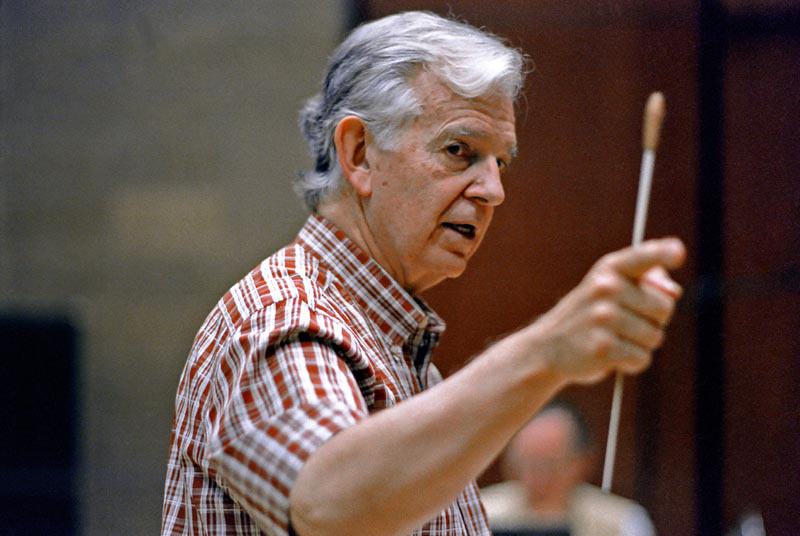
The composer - Bruce Broughton
Context
In that context, even a composer of Bruce Broughton’s extensively acclaimed skill set (he has won 10 Emmys) was faced with an almost impossible task of paying tribute to that indefinable element when commissioned by Prof Nicholas Childs and Black Dyke Band to commemorate the mission’s 50th anniversary in 2019.
The composer has written for the contest medium before with ‘Masters of Space and Time’ (a much-underrated work which despite its title doesn’t have an astronomical link at all) - a composition of very specific contest challenges.
That then must be borne in mind: ‘Heroes’ you sense was not conceived as a brass band contest test-piece (it comes in around 14 minutes in duration), despite the (admittedly) tenuous metaphorical link to President Kennedy’s assertion that “…because that challenge is one that we are willing to accept…and one we intend to win…”
The composer has written for the contest medium before with ‘Masters of Space and Time’ (a much-underrated work which despite its title doesn’t have an astronomical link at all) - a composition of very specific contest challenges.
Listener friendly
‘Heroes’ eschews those considerations in its listener friendly engagement.
The score provides a highly accomplished piece of descriptive, filmatic writing that displays its musical substance in a very different context - complete with its neat arithmetic time signature nod to the mission number as well as one of affection to Gustav Holst’s much earlier interplanetary explorations and even a witty little sci-fi trekking.
It neither offers character portraits of the three men involved or of the narrative chain of the mission’s events, but of the achievement itself.
The fundamental triptych structure is crafted by Broughton’s award-winning compositional skills honed in the Hollywood film industry.
It neither offers character portraits of the three men involved or of the narrative chain of the mission’s events, but of the achievement itself.
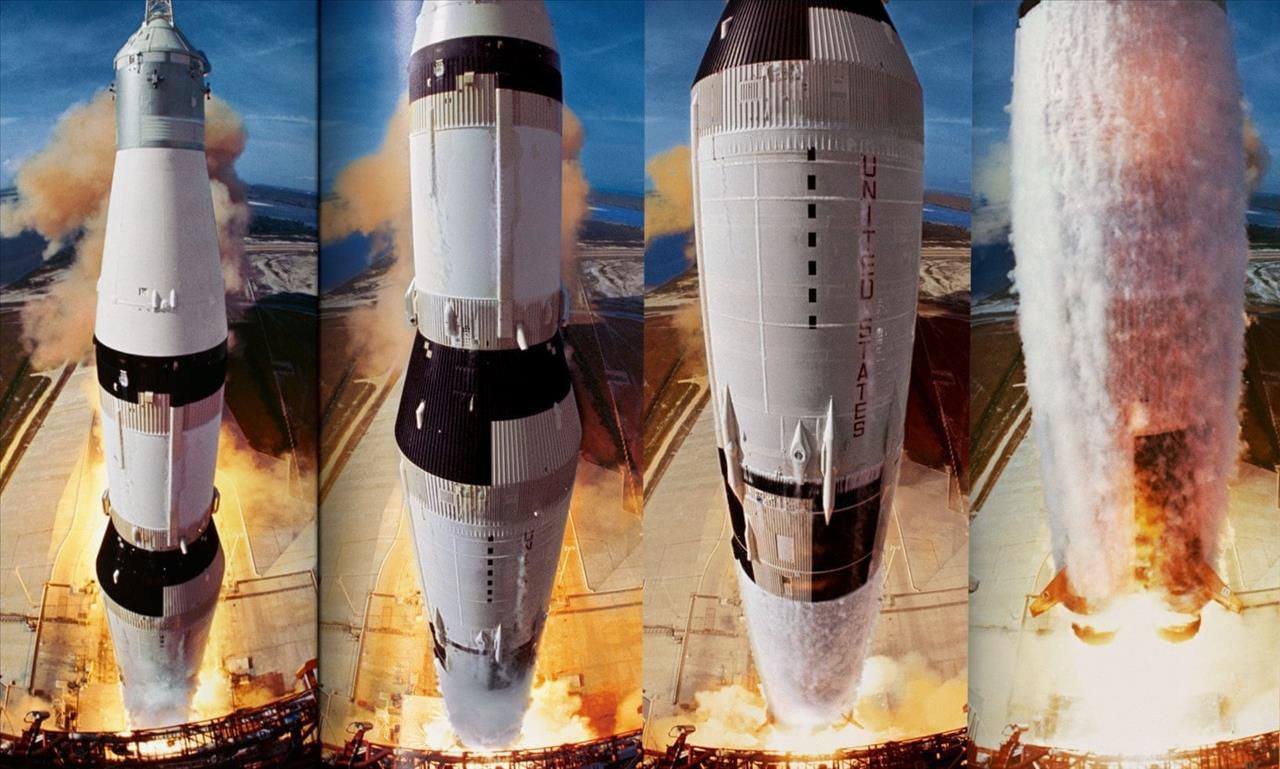
Ignition: The Saturn V rocket lifts off
Awe inspiring
The opening ('Ignition') quickly embeds the awe-inspiring imagery of the Saturn V rocket blasting in rising fourths from the Cape Canaveral launch pad – an incredible construct of 1960s manual slide-rule drawings, logarithm-table technology and American optimism.
This is music of propulsion and energy, dynamism and controlled ferocity; marked fast crochet = 92 but keeping its evenness even when the metre dislocates as the different stages of the rocket uncouple towards a lunar orbit heralded by a cornet cadenza that deliberately loses its energy to settle into stasis.
This is music of propulsion and energy, dynamism and controlled ferocity; marked fast crochet = 92 but keeping its evenness even when the metre dislocates as the different stages of the rocket uncouple towards a lunar orbit heralded by a cornet cadenza that deliberately loses its energy to settle into stasis.
Reflective beauty
The central section ('Tranquility') that follows is of flowing reflective beauty (crotchet = 72), the sight of which Michael Collins must have looked down on as he orbited the Moon for 21 hours in isolation in the Command Module.
Below him lay The Sea of Tranquillity where the fragile Eagle lander containing Armstrong and Aldrin had touched down.
His contemplations (the question asked throughout his life as he became the loneliest human being in the solar system) are marked by intertwined solo lines and cadenza links for horn, flugel, baritone and finally euphonium (preceded by a ‘mysterious’ section of whispered cornet lines like breaking radio static) whose voice heralds the start of the journey home.
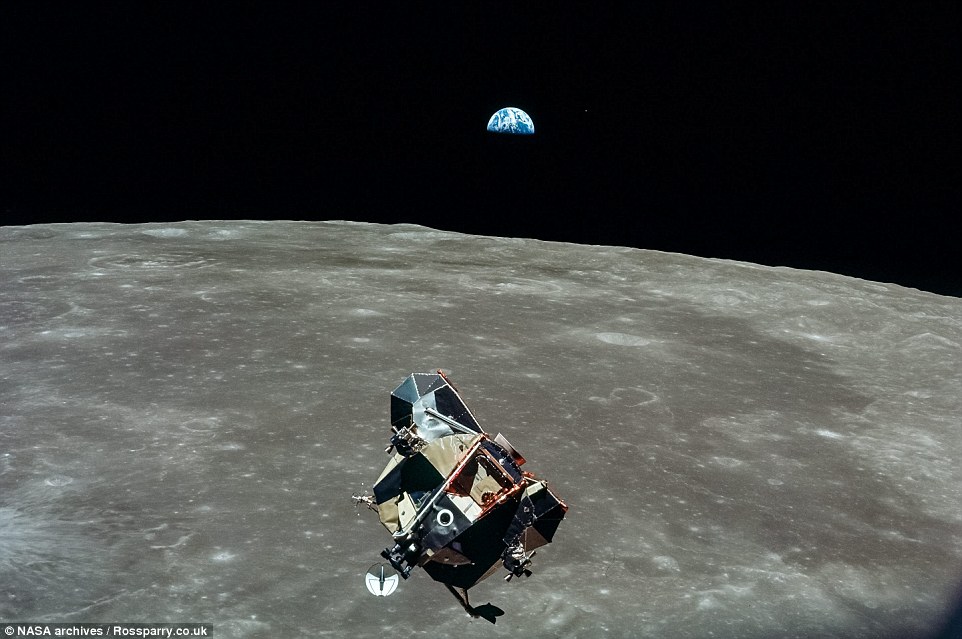
The start of the return home
Collegiate input
The piece is completed by the 'Return' to Earth as the achievements of thousands of NASA employees are harnessed together (and the score does have a hint of a collegiate input) - for a safe re-entry that marries both its technical and reflective elements to end in a thumping splash-down conclusion.
Broughton’s generously endowed composition brings this all thrillingly to life – although much like the Apollo missions themselves, public interest could well wane well before the final blast off takes place on the Albert Hall stage on late Saturday afternoon if all we get is a series of overwrought melodramas.
It makes for an engaging and uplifting, rather than deeply engrossing choice for this event.
Verve and excitement
‘Heroes’ certainly leaves an impression of verve and excitement, but also one hoping that such a wonderful composer can persuaded to write another major work for the medium of much more undiluted compositional scope and depth.
Listen to ‘Silverado’ or ‘The Presidio’, ‘Miracle on 34th Street’ or the number of Salvation Army works, and you capture much more of his outstanding compositional essence.
In the best conductor’s hands, bands that have a wide spectrum of colour and dynamic control will be able to explore the technical challenges and musical reflections without recourse to cheap theatrics and Disneyfied emotive triggers.
That said, it will still have to be played and played well, as the challenges that are displayed are wide ranging and clearly defined.
In the best conductor’s hands, bands that have a wide spectrum of colour and dynamic control will be able to explore the technical challenges and musical reflections without recourse to cheap theatrics and Disneyfied emotive triggers.
It will be a fine line though for them to draw.
In space no one can hear you scream, but the adjudicators can still hear the mistakes.
Iwan Fox













